Doctor Who Season 13 was Tom Baker’s second series at the TARDIS helm, and is hailed by many as one of the greatest of all time.
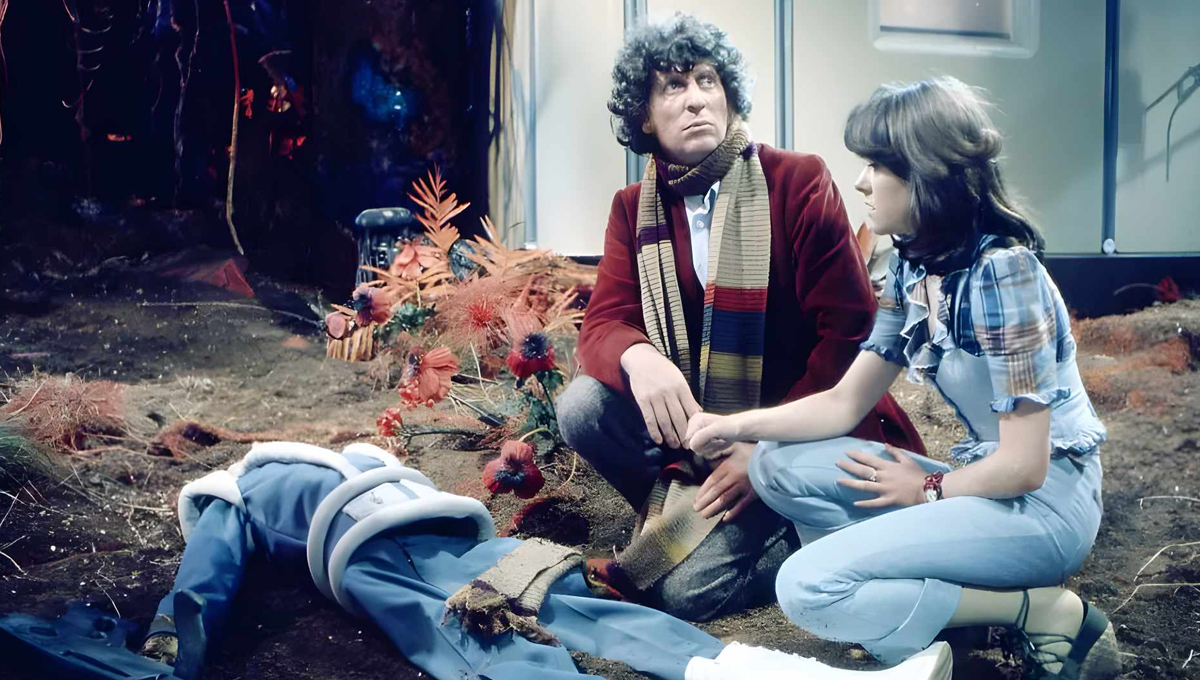
It’s always easy to look back at Doctor Who through rose-tinted spectacles; John Nathan-Turner famously told fans that “the memory cheats” and that the classic stories were nowhere near as good as people remembered.
The funny thing about Doctor Who Season 13, though, is that it really was as good as people remembered. Almost every adventure in this 1975 series qualifies for ‘classic’ status. In fact, its opening story ‘Terror of the Zygons’ was so beloved that it was chosen to close out the classic range of DVD releases, and its eponymous baddies were chosen as the main monsters for the show’s 50th anniversary.
Certainly, much of the magic of Doctor Who Season 13 is down to the creative partnership of Philip Hinchcliffe and Robert Holmes, who had a shared vision of making Doctor Who as scary as possible, using as many cinematic tropes as they could get away with. And this isn’t a criticism of their work; it was a conscious decision on the pair’s part, because they knew what worked, and they could see how the stock elements of vintage cinema and Hammer horror could be incorporated into the world of Doctor Who.

That is why, in Doctor Who Season 13, you will see such tried and tested tropes as zombies, killer mummies, mad scientists and demigods cropping up throughout – and they’re all used superbly.
In fact, the fifth story of the season – ‘The Brain of Morbius’ – is pretty much a retelling of Mary Shelley’s Frankenstein. In this case, though, Doctor Frankenstein is substituted for Doctor Solon, who’s said to be one of the greatest surgeons in the galaxy. He has preserved the brain of an infamous Time Lord known as Morbius, and has forged a new body for him to live in. And this body really is this stuff of nightmares, made out of salvaged alien appendages of all shapes and sizes.
However, if the original writer Terrance Dicks had had his way, ‘The Brain of Morbius’ would have turned out differently. His initial plan was to base the story around a dumb android who, in his incompetence, would struggle to build a suitable body to house Morbius, concocting a mish-mash of ill-fitting limbs.
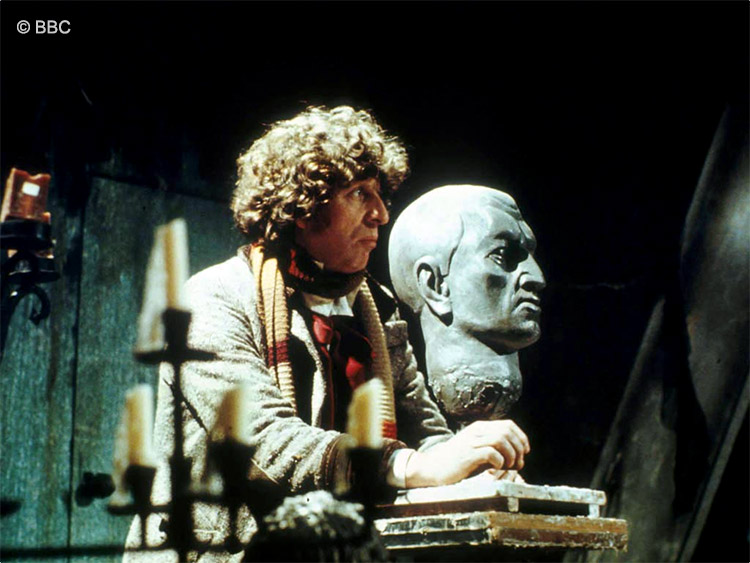
But Hinchcliffe went off this idea, and insisted that the robot be changed to a surgeon instead. Dicks was furious about this, claiming that the story no longer made sense; if Solon was one of the greatest surgeons in the galaxy, why couldn’t he put a decent body together? In his anger, Dicks took his name off the script and told Robert Holmes to use a bland pseudonym instead – hence why ‘The Brain of Morbius’ is now credited to Robin Bland.
Fortunately, these creative differences did little to lessen the impact of Doctor Who Season 13, and ‘The Brain of Morbius’ is now widely regarded as one of the highlights of the Tom Baker era. The only controversial moment is the scene in which the Doctor engages Morbius in a battle of the brains, and you can read all about that canon-breaking fiasco here.
Another stand-out story in Doctor Who Season 13 is ‘Pyramids of Mars.’ In this adventure, the Doctor and Sarah Jane do battle with the Osiran god Sutekh, who is desperate to break out of his Martian prison. To aid him, he has a whole army of robot mummies, and the power of human possession.
At the time, this Doctor Who Season 13 story seemed like a one-off romp, but it has proven hugely influential in subsequent years. The actor who voiced Sutekh (Gabriel Woolf) was later enlisted to voice the Beast in 2006’s ‘The Impossible Planet,’ before returning as Sutekh in 2024’s ‘Empire of Death.’ The Osiran, it turned out, had been clinging to the roof of the TARDIS ever since his defeat in ‘Pyramids,’ and was ready to unleash his wrath.
Newer Doctor Who fans may also be familiar with this story, as it was remastered for a 2024 episode of Tales of the TARDIS, with the Doctor and Ruby ‘re-living’ the adventure from the comfort of their memory TARDIS.
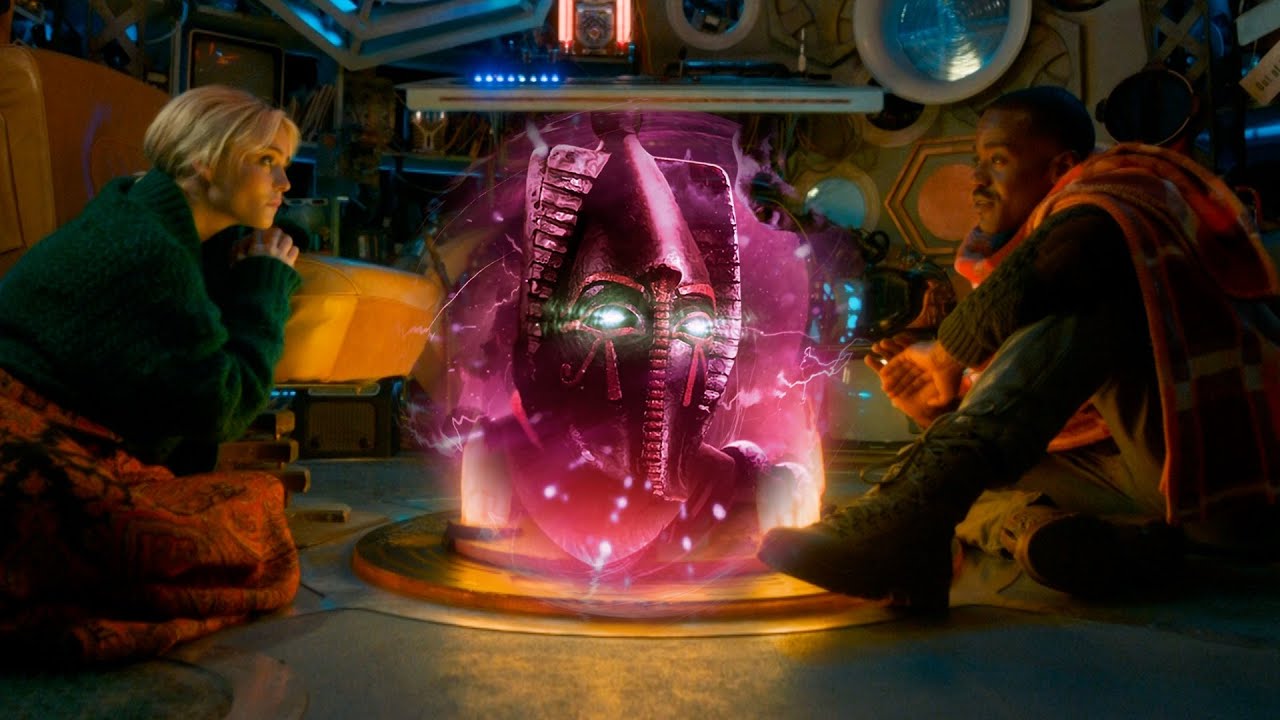
There are some oft-overlooked gems lurking in Doctor Who Season 13, too. One such story is ‘Planet of Evil’ – a sort of science fiction take on the zombie genre, written by Louis Marks. The zombies in this case are ‘antimen’ – people possessed by antimatter who go on a killing spree on the nightmarish world of Zeta Minor. This is one story to watch for its visuals; the planet’s eerie jungle aesthetic is skilfully realised at Ealing Film Studios and, being shot on 16mm, has a rich cinematic quality to it. It’s just a pity the entire adventure wasn’t shot on film as, inevitably, the rest of the story is shot on conventional tape, such was the BBC’s wont.
Rounding off Doctor Who Season 13 is the six part ‘Seeds of Doom’ by Robert Banks Stewart, who also penned ‘Terror of the Zygons.’ Sometimes, six part Doctor Who stories can tread water, and Hinchcliffe was keen to avoid them for this very reason. But budgetary concerns gave him little choice in Doctor Who Season 13, and Robert Banks Stewart rose to the occasion; ‘The Seeds of Doom’ is an excellent yarn – a bit like Day of the Triffids meets Little Shop of Horrors meets The Thing. It’s helped, in part, by the fact that it’s two stories welded together; the first two episodes take place almost entirely in Antarctica, before shifting to England.
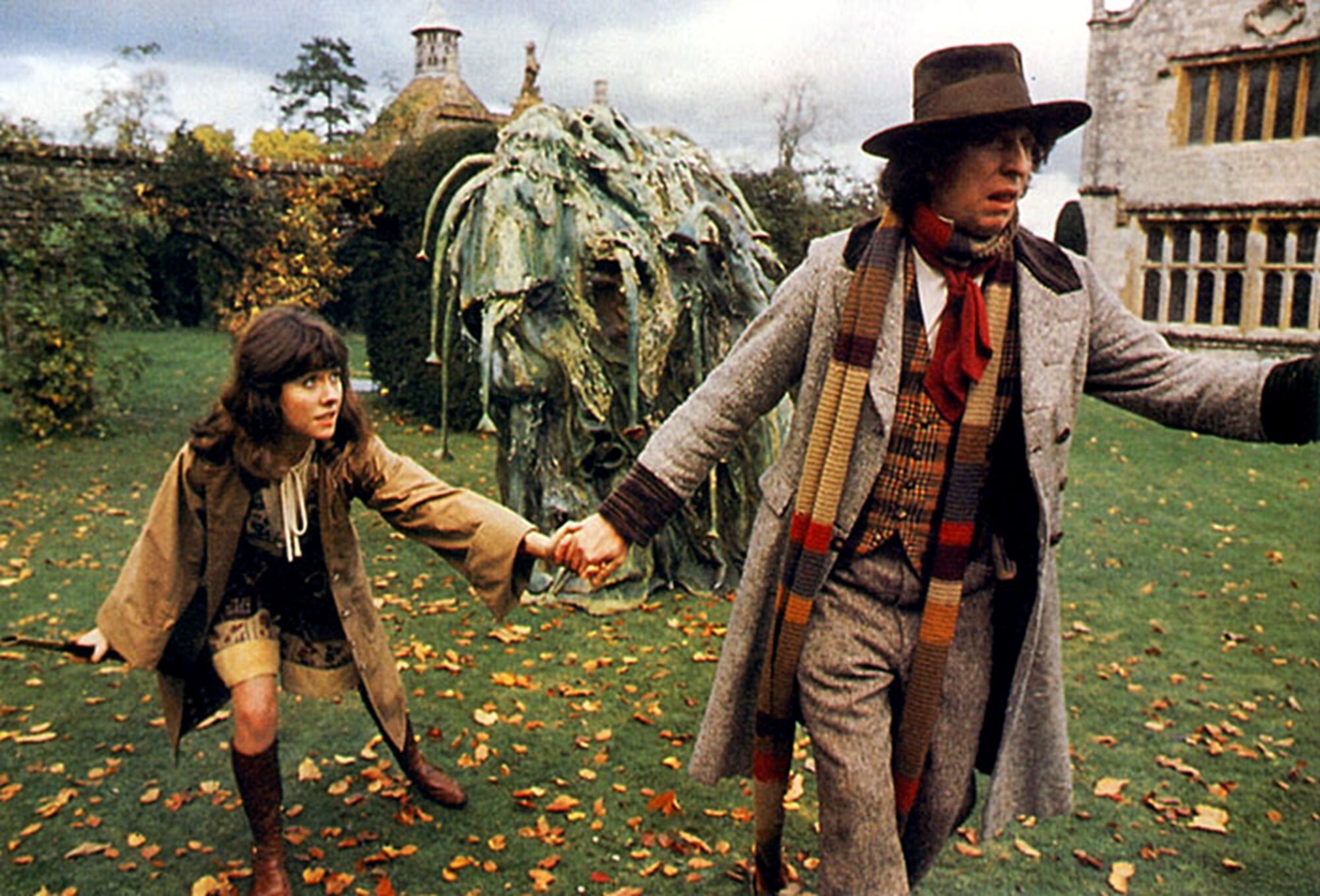
There are also some great baddies. Yes, there are the killer pods giving birth to killer plants which strangle people, but there is also the icy and botany-obsessed millionaire Harrison Chase, and his thuggish lackey Scorby played by John Challis. Scorby meets a particularly grizzly end in ‘The Seeds of Doom,’ getting sucked underwater by the killer plant monsters (known as Krynoids) and drowned. It’s a truly terrifying moment.
So it’s fair to say that Doctor Who Season 13 doesn’t pull any punches. It was controversial at the time, but frequently pulled in viewers in excess of 10 million. It skilfully blended science fiction and horror in a way that was gripping, entertaining and memorable. This is what Doctor Who does best, and the fact that Doctor Who Season 13 continues to influence the modern incarnation of the show is a testament to its success.
What do you love most about Doctor Who Season 13? And which is your favourite story? Let us know in the comments below.








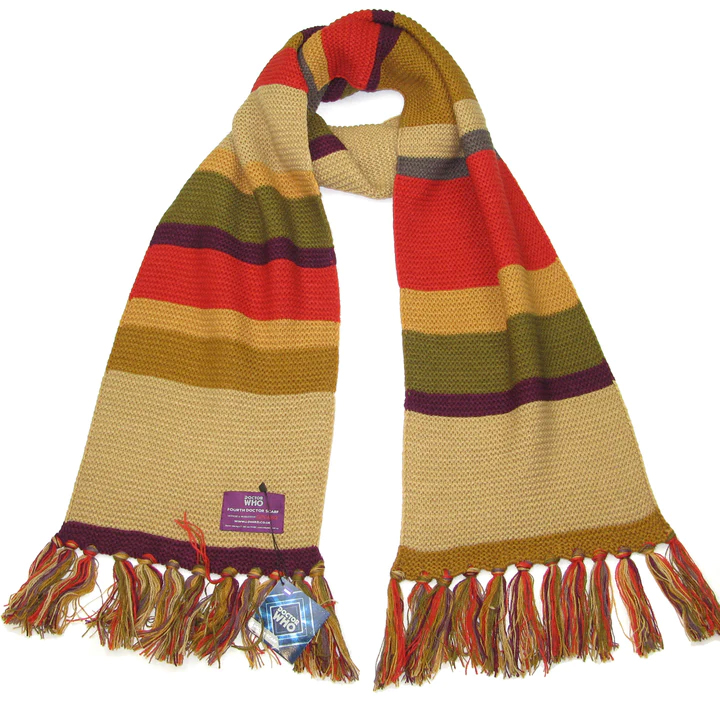
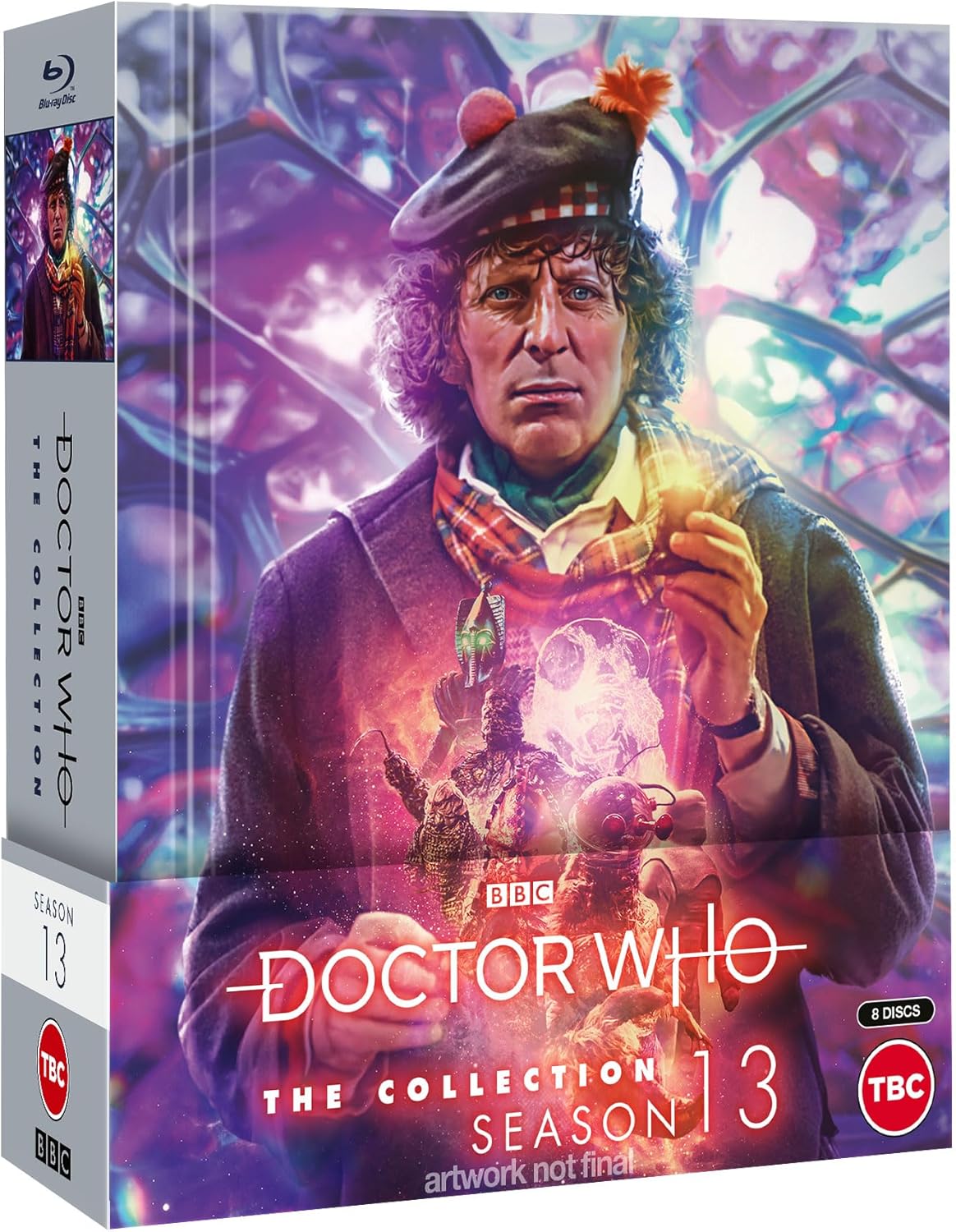
Leave a Reply